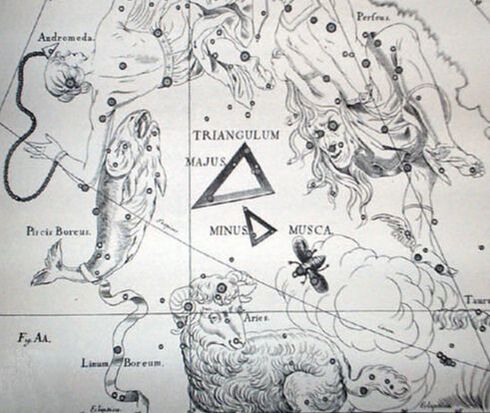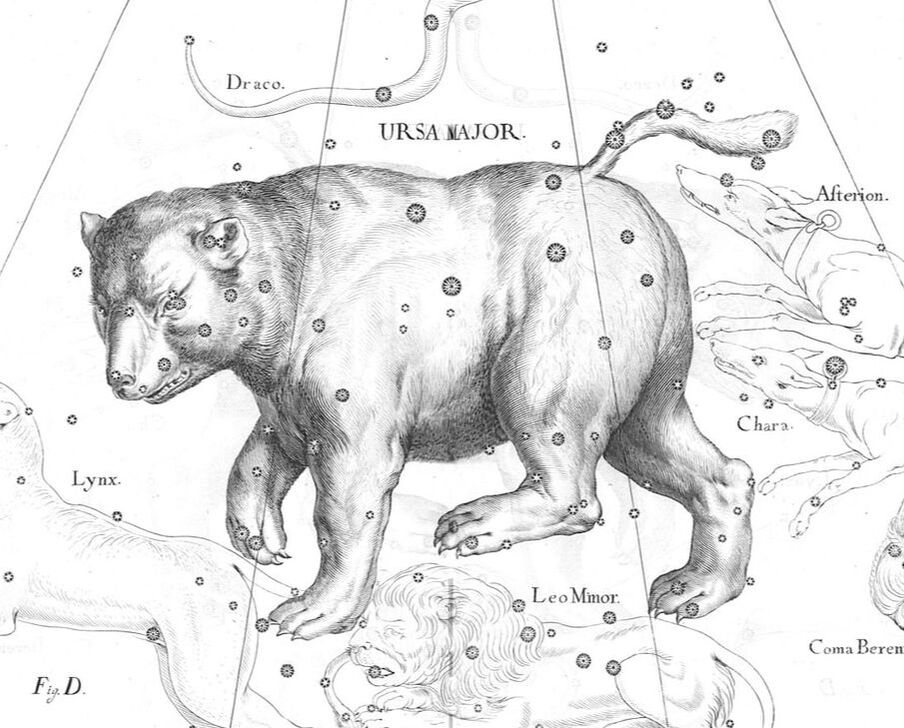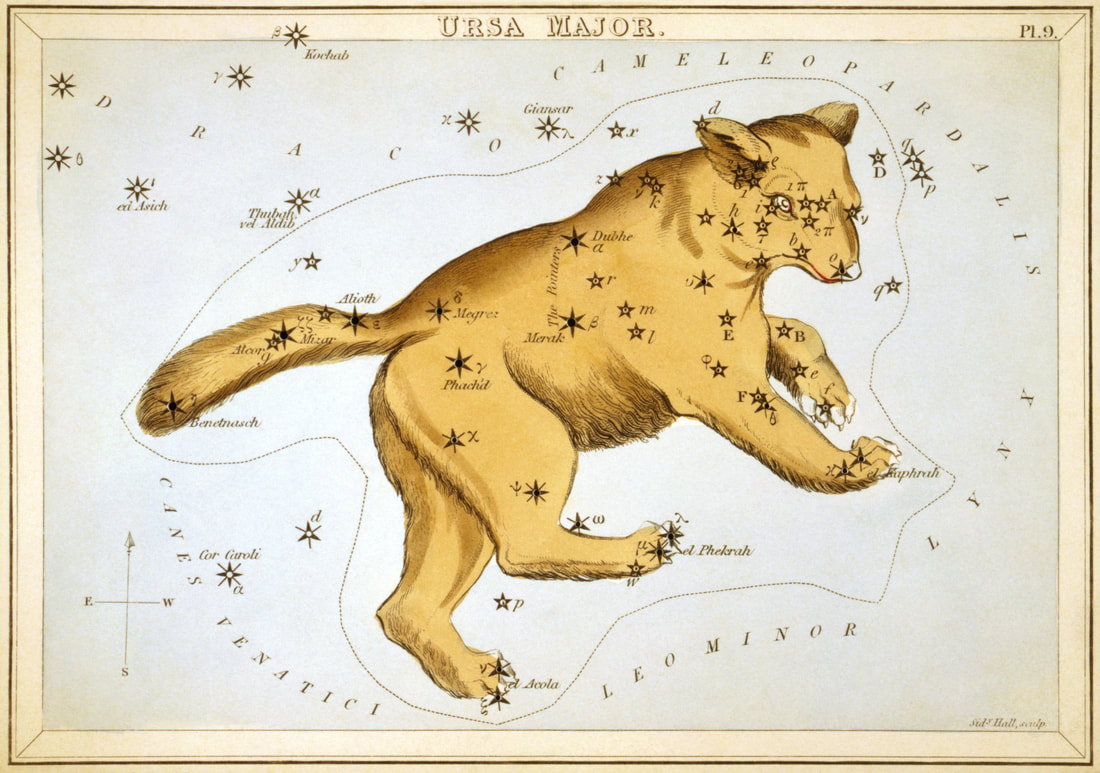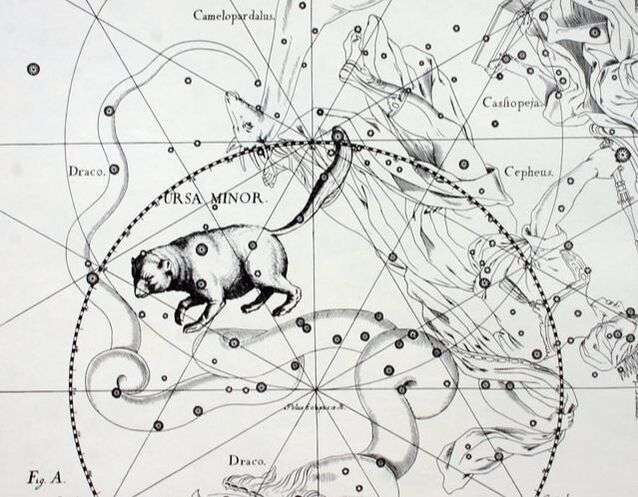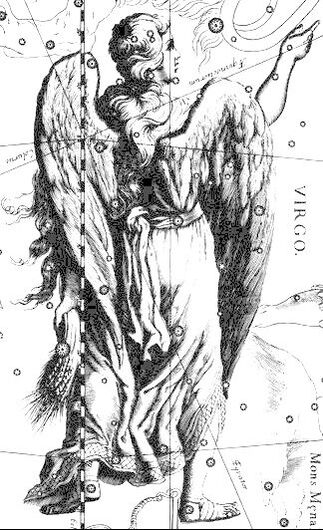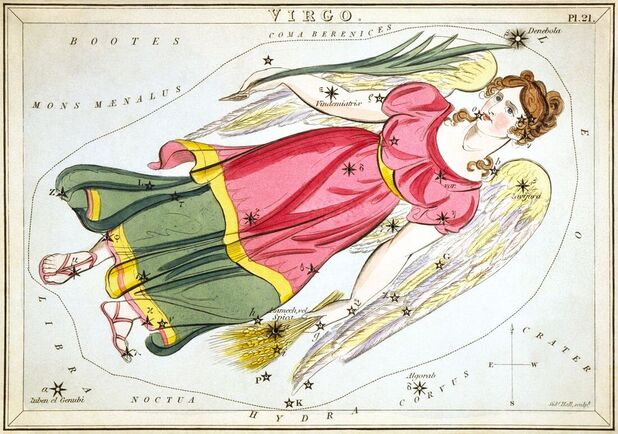THE CONSTELLATIONS AND GREEK MYTHOLOGY
|
Greek mythology and the Constellation Triangulum
Triangulum, the Triangle, is one of the few constellations that is not based on a story of person nor beast from Greek mythology.
The most prominent story tells of Triangulum being created by the god Hermes simple to ensure that the dimness of the constellation Aries be enhanced. The shape of Triangulum though is also suggestive that it represents an area of land, either the Nile Delta, or the island of Sicily. |
|
Almost as an afterthought, Hyginius suggests that Triangulum symbolises the division of the cosmos after the Titanomachy, with Zeus taking the Heavens, Hades, the Underworld, and Poseidon, the Sea.
|
Greek mythology and the Constellation Ursa Major
The constellation Ursa Major is amongst the most famous of all of the constellations, and as the Great Bear, this constellation also depicts a famous tale of Greek mythology.
Most commonly, Ursa Major is said to depict Callisto, the Arcadian princess companion of Artemis. Callisto would become a lover of the god Zeus, and subsequently would give birth to a son, Arcas. Callisto though, would be turned into a she bear, either by Zeus, to hide his infidelity, Hera, as punishment for sleeping with her husband, or Artemis, for no longer being a virgin. . In the form of a bear, Callisto would find herself hunted by her own son, and so Zeus transformed Callisto into Ursa Major whilst Arcas was transformed into Bootes or Ursa Minor. Some say that Ursa Major was not the depiction of Callisto but was instead Helice, a nymph who had nursed the baby Zeus when he was hid upon Mount Ida. |
|
|
Greek mythology and the Constellation Ursa Minor
Ursa Minor is of course the Little Bear constellation, and although occasionally named as Arcas, the son of Callisto, from Greek mythology, it is by no means the most common myth associated with the constellation.
Arguably, more commonly, Ursa Minor is said to depict the nymph Cynosura, who like Helice, in the case of Ursa Major, was one of those who nursed Zeus, when the god was still an infant, and hiding in a cave upon Mount Ida. |
|
|
Greek mythology and the Constellation Virgo
Virgo is another of the constellations that is also a Sign of the Zodiac, with links to Greek mythology. Virgo is of course representative of the Virgin, and although most commonly the constellation was said to be Astraea, there are also other possibilities.
Astraea was the virgin goddess of Justice who was the last of the Greek deities to leave the surface of the earth, to go to live forever more in their divine palaces, when Astraea saw that mankind had become unruly and less pious than they had once been. Astraea had her Scales of Justice which were placed in the heavens as well, as the constellation Libra. Another virgin goddess who some say was set in the stars as Virgo, was Tyche, the goddess of good fortune, with her scales of fate set as Libra. Other say that it was Erigone, the daughter of Icarius, who became Virgo; Icarius who was favoured by Dionysus until he was killed by peasants. As Icarius was transformed as Bootes, and his dog, Maera became Canis Major, so Erigone became Virgo. |
|
